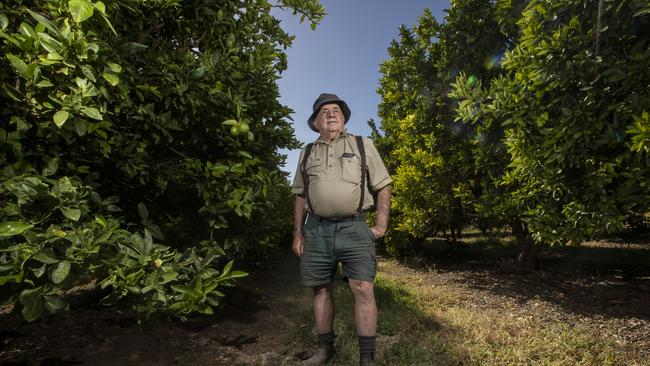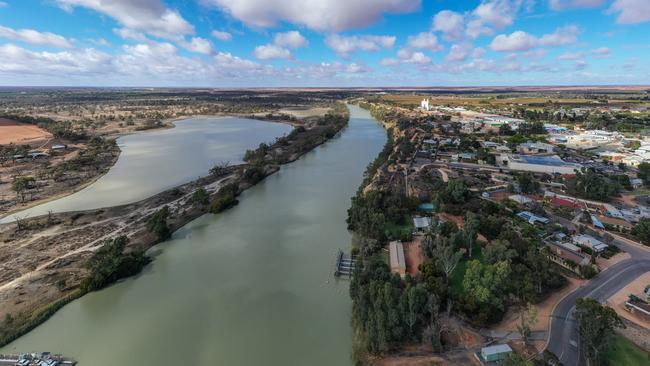Riverland Horticultural Futures group formed to shape regional climate risk assessment
Irrigators in the Riverland are so fed up with inaccurate and conflicting information about water security and climate change in the Murray-Darling Basin that they’re going to look after themselves.

SA News
Don't miss out on the headlines from SA News. Followed categories will be added to My News.
Riverland growers have lost faith in the Federal Government’s ability to manage climate change risk and vowed to take responsibility for their own future.
Loxton’s Brett Proud, who is also chairman of Riverland Wine, said anxiety over water security and climate risk has motivated a new cross-commodity group of growers to come together, united by a common goal.
Riverland Horticultural Futures met last week with University of Adelaide researchers to plan a long-term risk assessment for the region.
“We know that in years to come there’s going to be less water to go around,” Mr Proud said. “Instead of seeing a bloody riot as a consequence, we want to research the potential climate scenarios so that we can then go through risk profiling and come up with control of our (water) allocation.”
A recent report by the Wentworth Group of Concerned Scientists, which found trillions of litres of water had gone missing from the Murray-Darling, was the latest in a long list of disturbing and often conflicting documents.
“As Riverland irrigators, we’re confronted with a vast array of reports where people are defending their position and we felt there was no one in our corner,” Mr Proud said.
“Now at long last the farmers of the region are accepting responsibility for their future.”

Tapping into MDBA and CSIRO climate records and future scenario models, University of Adelaide visiting research fellow Christopher Auricht, who grew up in the Riverland, is advising the group.
“They realise that business as usual is not going to work going forward,” he said.
“There has to be some transformation, especially when you look at the climate projections of increased temperatures and those sorts of things.”
Water Minister Keith Pitt is supportive and recently announced a $37.6m investment in areas such as “community resilience and river health”.
“I commend any grower groups who seek to improve their understanding of their future business environment, including possible water availability scenarios,” he said.
MDBA senior director of river connectivity and climate adaptation Matt Coleman confirmed the authority was working with the University of Adelaide and Auricht research.
“We’re always pleased to assist researchers and scientists in their study of water resources in the Basin,” he said.
Citrus industry stalwart Mike Arnold, 82 of Waikerie, has seen a great deal of change in his time, from using flood irrigation to overhead sprinklers and more recently, drip irrigation.
“Water is getting scarce,” he said. “Most growers are thinking about how we can save water and save water, so if we do get cut back a bit we can still manage.”

